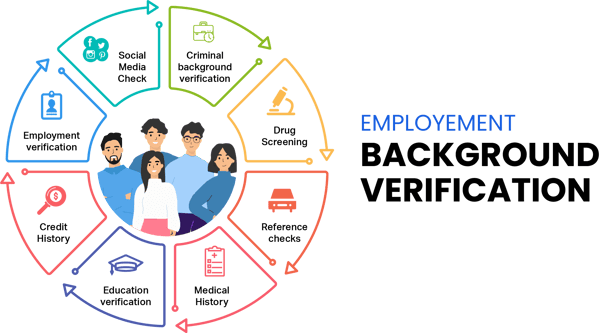Recruitment agencies play a crucial role in ensuring that candidates are suitable for the positions they apply for. One of the key steps in this process is conducting background checks. Here’s a simplified overview of how recruitment agencies handle these checks.
Understanding the Purpose
Background checks are essential for verifying the accuracy of a candidate’s information and ensuring they meet the necessary legal and job-specific requirements. These checks help reduce hiring risks and protect the company from potential liabilities.
Types of Background Checks
Recruitment agencies perform various types of background checks, depending on the job requirements and industry standards. Common checks include:
- Employment History: Verifying past job titles, roles, and durations.
- Education Verification: Confirming degrees and certifications.
- Criminal Record: Checking for any criminal history that might affect job performance or safety.
- Credit Check: Reviewing financial responsibility, often crucial for roles involving financial management.
- Driving Records: Ensuring candidates for driving roles have clean records.
- Drug Screening: Ensuring a drug-free workplace.
- Social Media Checks: Reviewing public profiles for any red flags.
Legal Compliance
Compliance with legal standards is critical when conducting background checks. Agencies must adhere to the Fair Credit Reporting Act (FCRA), which governs the use of consumer reports for employment purposes. This includes obtaining written consent from candidates before conducting the check and ensuring they are informed of their rights.

Image Source: blog.darwinbox.com
The Background Check Process
The typical background check process involves several steps:
- Disclosure and Consent: Informing the candidate about the background check and obtaining their written permission.
- Data Collection: Gathering necessary personal information, such as full name, date of birth, and Social Security number.
- Verification: Using various sources to verify the information provided by the candidate. This may involve checking public records, contacting educational institutions, and previous employers.
- Review and Decision: Analyzing the gathered information and deciding based on the findings. If any issues are found, the candidate is often given a chance to explain or dispute the information.
Choosing a Screening Service
Many recruitment agencies partner with third-party background check companies to streamline the process and ensure accuracy. These companies have access to extensive databases and employ compliance experts to navigate the complexities of background screening laws.
Conclusion
Background checks are a vital part of the recruitment process, helping agencies and employers make informed hiring decisions. By understanding the different types of checks, ensuring legal compliance, and following a thorough verification process, recruitment agencies can effectively identify the best candidates for their clients. This diligence not only enhances the quality of hires but also builds trust and credibility in the recruitment process.
Professional Services: Recruiting Guides




